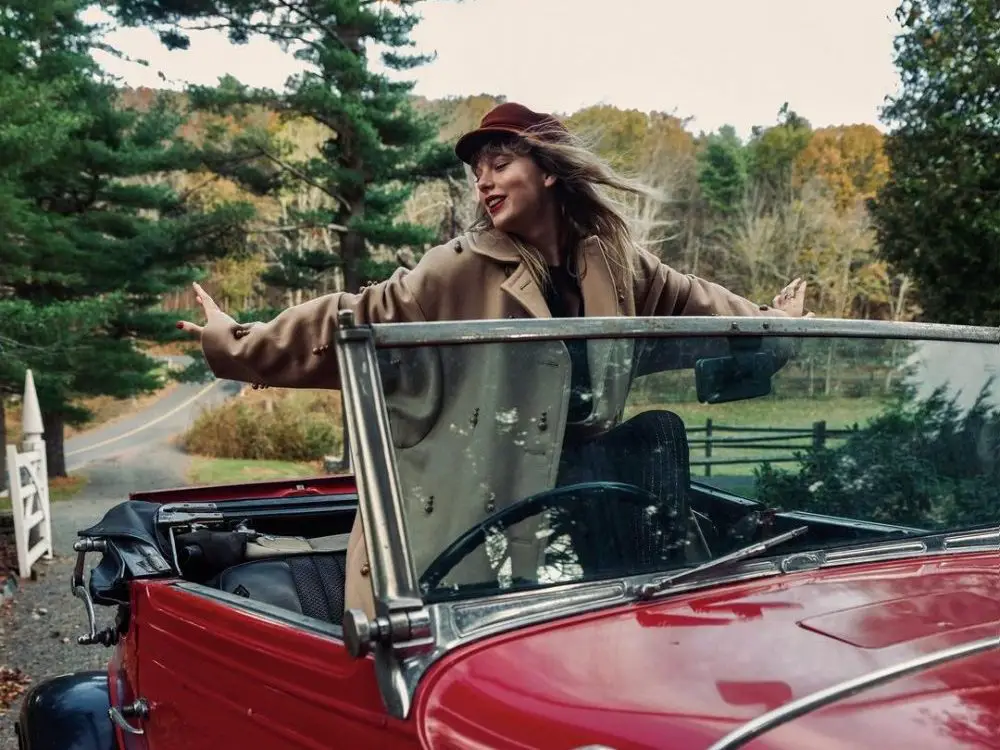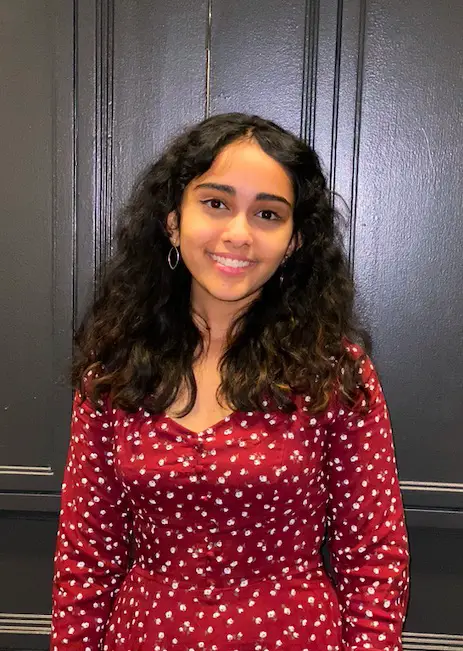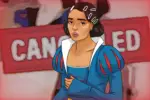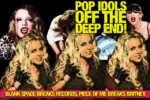On Nov. 12, Taylor Swift dropped her re-recording of her album “Red,” titled “Red (Taylor’s Version),” and it has put her fans through a whirlwind of emotions, just as the original record did in 2012. “Red” is best summed up by a lyric from the single “22” — “happy, free, confused, and lonely at the same time” — paired with a lyric from “State of Grace” — “mosaic broken hearts.” In Swift’s announcement of the re-recording, she elaborates on this odd emotional time, explaining that the world is different for those who are heartbroken and experience “moments of strength, independence, and devil-may-care rebellion … intricately woven together with grief, paralyzing vulnerability and hopelessness.”
The lyrics of “Red” do a great job conveying this, but it is perhaps portrayed even more subtly by the order of the tracks, like gut-wrenching song number five, “All Too Well,” sandwiched between the upbeat “I Knew You Were Trouble” and “22.” The connection between songs in her discography is one of Swift’s trademarks, and it is only enhanced in “Red (Taylor’s Version)” by the addition of the vault songs. Here, I will decode some of the lyrical parallels between the “Red (Taylor’s Version)” vault songs and other songs in her career.
Turning 22
When “Red” was originally released in 2012, many fans were confused by the presence of the track “22.” In an album that covered a wide spectrum of emotions, “22” seemed out of place. However, “All Too Well (Ten Minute Version) (Taylor’s Version) (From the Vault)” explains why this birthday was so significant for Swift: Her 21st birthday was the one that her then-boyfriend had skipped, as she sung about in “The Moment I Knew.” Swift sings about how her dad sadly watched her watching the front door during the whole party in hopes of her then-partner showing up, upset on Swift’s behalf because “‘It’s supposed to be fun turning twenty-one.’”
This further explains why Swift said in the “Folklore Long Pond Studio Sessions” that she saw James and Betty, characters from the “folklore” love triangle — the former cheating on the latter — getting back together. In the song from James’ perspective, when trying to get Betty back, he repeats, “I showed up to your [Betty’s] party,” even though he hates the crowd. To Swift, showing up is one of the most important things that a lover can do in a relationship.
Shiny and New
My favorite vault track, “Nothing New (feat. Phoebe Bridgers) (Taylor’s Version) (From the Vault),” expresses Swift’s deep fear that her fans will eventually tire of her, and it parallels many of her future songs’ sentiments. The first verse discusses the irony that women are told to look for the right man but then criticized — “hunt[ed] and slay[ed…]shot down” — for dating too many people. This thought pattern and imagery lines up with “mad woman,” a song from “folklore” that is about the same cycle of driving women to the point of “crazy” and “angry” before expressing pity for them while failing to realize that they caused the women’s spiral.
The vault track also pairs well with “mirrorball,” another song from “folklore.” In “mirrorball,” Swift explains that she is “still on that trapeze … still trying everything to keep you looking at me.” With the added knowledge of the vault song, we see that she does so because she understands that “people love an ingénue”; she is afraid that it will not be long until “someone else lights up a room” and people forget about her. Swift also touches on this in “Miss Americana,” her Netflix documentary, where she talks about the industry’s tendency to move on from women as they age unless they continuously reinvent themselves.
Swift’s Current Relationship
The most adorable parallel of “Nothing New” has to be its connection to “Call It What You Want” from “reputation.” In the former song, Swift questions, “Will you still want me when I’m nothing new?,” and the latter song answers that her baby “loves [her] like [she’s] brand new.” We can also pair “Call It What You Want” with “All Too Well (Ten Minute Version) (Taylor’s Version) (From the Vault),” wherein Swift points out that her then-lover “never called it what it was.” We can see how much better Joe Alwyn, Swift’s current boyfriend, is to her; Swift does not care what their relationship is called in “reputation” — she knows its worth on her own.
The 10-minute version of “All Too Well” connects to “Lover,” as well, which further cements Alwyn as Swift’s best partner. In the former, she sings, “They say all’s well that ends well but I’m in a new hell every time you double cross my mind”; but in the latter, she twists the devastating lyric to something much more romantic: “All’s well that ends well to end up with you.”
Repurposing Phrases
Swift did not just twist old lyrics in “Red (Taylor’s Version),” however — some of her scrapped phrases were so good that she came back to them when writing later songs. For instance, toward the end of “I Bet You Think About Me (Taylor’s Version) (From the Vault),” she declares, “I bet you think about me when you say ‘Oh my God, she’s insane, she wrote a song about me.’” This parallels the chorus of “Blank Space”: “Got a long list of ex-lovers, they’ll tell you I’m insane.”
In “Run (feat. Ed Sheeran) (Taylor’s Version) (From the Vault),” the pair sings, “There’s been this hole in my heart / This thing was a shot in the dark.” A similar lyric with a different meaning is sung in “Getaway Car,” wherein Swift explains that she and her then-partner “never had a shotgun shot in that dark.” Both songs discuss escaping with a partner, one successfully and the other unsuccessfully.
Swift also evidently knows a thing or two about getting in relationships that are not meant to last very long. In “The Very First Night (Taylor’s Version) (From the Vault),” Swift sings, “Back then we didn’t know we were built to fall apart” — a phrase that Swifties know very well from the “1989” hit “Out of the Woods,” which goes, “We were built to fall apart, then back together.”
In the ballad “Forever Winter (Taylor’s Version) (From the Vault),” Swift tries to help a friend see the light and value in their life: “Too young to know it gets better, I’ll be summer sun for you forever, forever winter if you go.” She references these seasons later in the single “ME!” where she explains to a lover, “Living in winter, I am your summer.” Swift is a ball of sunshine if I have ever seen one, and she wants to make people’s lives a little bit brighter (did you catch that “mirrorball” reference?).
With so many of Swifts’ songs intertwining, we Swifties get a front-row seat to her growth as both a person and an artist. We get to relate to her insecurities and experiences in love and loss, but seeing her lyrics change offers, at least to me, a sense of hope.
















